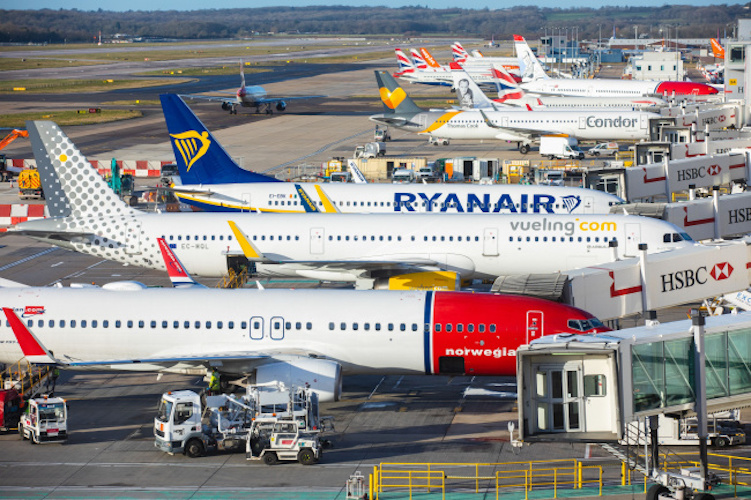Having just returned from holiday in Greece, I am all too familiar with the rigmarole of modern travel. Being double vaccinated still means double tests. And it’s not just the hassle or the cost of getting tested, it’s also the uncertainty about whether the rules that applied when you started your trip will still be in place when you return. No wonder so many are reluctant to risk a holiday or business trip abroad.
Despite having reached the final step of the government’s unlocking roadmap two months ago, international travel remains complex, uncertain and expensive to navigate. We urgently need to get a simplified, transparent and predictable set of rules in place for getting on and off our island that recognises the data, understanding, and risk levels that exist today.
This calls for more than just tinkering with the traffic lights. Last Friday, the Competition and Markets Authority confirmed what anyone who has recently tried to travel to the UK already knows: travellers are being short-changed on Covid testing. The watchdog produced a worthy list of recommendations for improving the current system but missed the fundamental point: the whole traffic light system is no longer fit for purpose.
With the government review of restrictions on international travel due by 1 October, there are three simple steps it should take to unlock international travel safely and accelerate the recovery.
First, create a genuine green list. No matter where you are in the world, a green traffic light means go. It does not mean stop for a test, fill out a form and then take another test on the other side of the junction. Office for National Statistics figures show that while the infection rate in England between 22 July and 11 August was 1.36 per cent of the population, only 0.7 per cent of passengers arriving from “green list” countries tested positive. Travel from countries and regions with significantly lower rates of Covid-19 than the UK, with well-vaccinated populations and no known variants of concern, should be treated the same way as domestic travel. That means no tests and no passenger locator form (PLF).
The second is to simplify the PLF for those remaining passengers who need to fill one out. As passenger numbers have ticked up in recent weeks, Eurostar has been able to process a full train of passengers heading out of St Pancras in just one hour. But coming into the UK, only half that trainload of passengers will get through all the checks within an hour because of additional bureaucracy. Anyone who has managed to get away this summer will have noticed how much more data the UK requires on its PLF compared with other countries, adding additional time and stress to both the traveller and those checking the form.
The third is to overhaul the costly and inefficient testing system for those remaining travellers who need to prove their negative status. At present, within the UK’s borders, you can go about your life as you please and still get access to public testing services. But if you drive alone to Dover, board a ferry, sit alone on deck for the crossing, and go for a walk alone in the French countryside before returning the same way, you will have to pay for two tests. And the one in the UK will probably cost about three times more than the one in France. This is not a risk-based system – it’s a rip-off, and one that is deterring people from travel.
There is a simple solution. If the state requires us to take tests, those tests should be freely available. This can be done cheaply with rapid tests that are only escalated to gold-standard PCR tests in the case of positive results. We have the testing centres, but current government policy excludes just one activity from NHS coverage: international travel.
This omission does not reflect the economic value of international travel. Getting the system right matters because travel is not a luxury and nor it is just about holidays, though we would do well to remember that pre-pandemic tourism was worth £146 billion to the UK economy, or seven per cent of GDP. International travel is also central to reuniting families from far flung corners of the globe and building world-beating British institutions. New figures from London Economics published last week show that international students bring a net economic benefit of £25.9 billion with each intake, spread across the whole UK. But as the academic year started, UK flights were still down 48 per cent compared to 2019, while the equivalent figure in France and Spain was just 29 per cent.
We do not know what the future will hold, which is why having transparent triggers for countries moving between categories is so important. But we do know we’re falling behind. We can’t be global Britain if we can’t get overseas. How are international businesses supposed to export, expand and create jobs here without the ability to travel to their suppliers and clients? The UK is currently alone among large European travel markets in having fewer international journeys in 2021 than in 2020. Our competitors are not waiting. With the world opening up, we mustn’t miss out.
John Dickie is Chief Executive of business group London First. Image from London First.
On London is a small but influential website which strives to provide more of the kind of journalism the capital city needs. Become a supporter for £5 a month or £50 a year and receive an action-packed weekly newsletter and free entry to online events. Details here.

